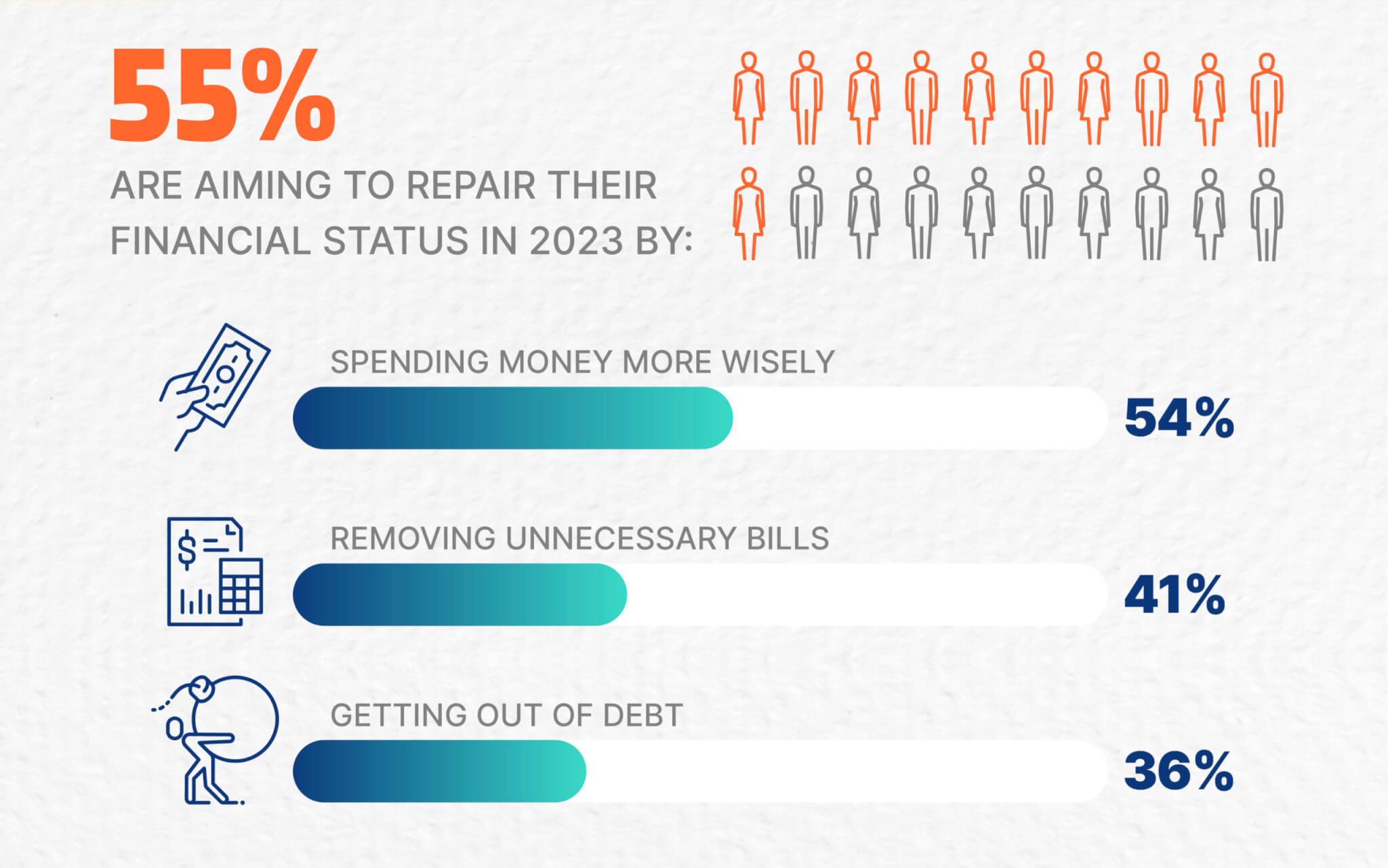NEW YORK — Was 2022 the year of the financial backslide? For many Americans, this year was far from money. The latest in a series of annual New Year’s spending research projects asked 2,000 U.S. adults to assess their finances over the past year and their outlook for 2023, finding a widespread failure of financial stability.
The survey reveals that 58 percent found this year to be economically difficult for them — a stark contrast to 2021, where only 15 percent found the year difficult, and 2020, which was difficult for 47 percent. When asked whether or not their 2023 New Year’s resolutions include being smarter with money, only 63 percent said “yes,” a sizable dip compared to 76 percent in 2021 and 73 percent in 2020.
Eleven percent say they were so frustrated with 2022, they’re not even going to bother making resolutions at all for the upcoming year. Similarly, just over half (55%) believe in accumulating wealth in 2023 by repairing their financial situation — another dip from the 76 percent last year and 72 percent the year before. Furthermore, 66 percent of respondents previously claimed that 2022 would be the year they become financially stable, but only 53 percent have the same sentiments for 2023.
Conducted by OnePoll and commissioned by Slickdeals, the study also shows that close to four in five (79%) are still concerned about inflation, with 66 percent seeing it as a major roadblock to them reaching their financial goals in 2023. Other factors play a role in people’s economic outlook, like gas prices (52%), paying more bills (38%), and the pandemic (32%).

Inflation keeping 6 in 10 from spending normally
Last year, factors like medical expenses (47%) and the sudden loss of income (38%) are among the top financial stressors. In 2020, the pandemic (53%) was the biggest factor. New to this year’s survey, 59 percent claim they have had to postpone making major purchases due to inflation. The biggest postponed purchases are cars (42%), clothing (38%), new phones (31%), renovation projects (28%), and new computers (24%).
“While this year’s survey reveals that folks are less optimistic about their finances than they have been in past years’ surveys, the new year is a good opportunity for a financial reset,” says Louie Patterson, personal finance manager for Slickdeals, in a statement.
2023 resolution: More money, less problems
To repair their financial status in the year ahead, many people plan on spending money more wisely (54%), removing unnecessary bills (41%), getting out of debt (36%), and creating a monthly budget (35%). Their aim is to save an average $312 per month.
For two-thirds, the answer to having a brighter economic year might be to shop smarter. Those respondents say that in order to shop responsibly, it’s important to find products that can last a long time (52%), be beneficial to everyday life (51%), go on sale often (37%), and come from a well-trusted company (33%). Over four in five (84%) “feel mentally better” if they know they have their finances under control. Nearly as many (78%) believe having financial stability can have a positive domino effect in their lives.
“Shopping smarter can lead to big savings with just a few simple tweaks such as eliminating subscriptions, tapping into rewards programs, and finding more deals to get the best value,” Patterson concludes.
Survey methodology:
This random double-opt-in survey of 2,000 general population Americans was commissioned by Slickdeals between Nov. 22—28, 2022. It was conducted by market research company OnePoll, whose team members are members of the Market Research Society and have corporate membership to the American Association for Public Opinion Research (AAPOR) and the European Society for Opinion and Marketing Research (ESOMAR).
